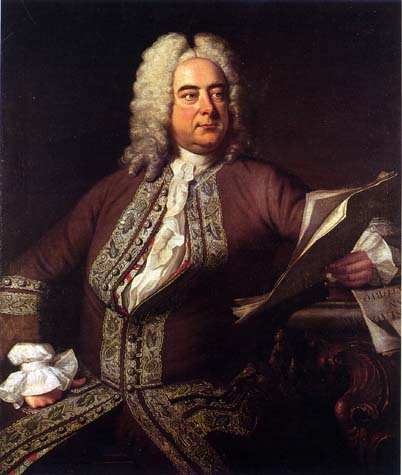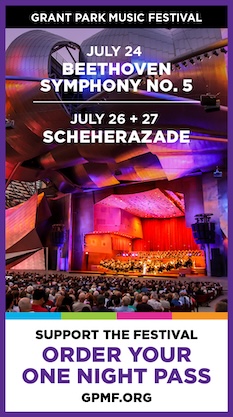Music of the Baroque offers a Handel choral program fit for a king

How wonderful for Music of the Baroque to live up to its name by presenting a concert of choral works by one of the stalwarts of that era, George Frideric Handel. Such single-composer concerts of Bach or Handel were once the mainstay of the group, but as the ensemble traversed later into the 18th century and began spotlighting music of the Classical era, especially Mozart, the repertoire that Music of the Baroque was founded to illuminate has sometimes been given a secondary role.
In this case, Handel’s music for the British court was spotlighted in a program called “Handel & the Royals.” Featured were a trio of diverse works of enormous breadth, scope and occasion that traverse twenty-five years of Handel’s career in England, serving three generations of royals.
Handel arrived in London “300 years ago this year,” as conductor Jane Glover noted in her opening remarks, and almost immediately Queen Anne, the last monarch of the House of Stuart, took a liking to the young German composer. His Ode for the Birthday of Queen Anne: Eternal source of light divine, HWV 74 was written for the court festivities of the 1713 celebration of Anne’s February 6 birthday, and Handel used all of his gifts to write an extraordinary nine-movement work for the occasion.
The opening is an evocative antiphonal canon between alto and trumpet meant to aurally portray a sunrise that sets the title verse rapturously with lingering lines punctuated with ornate trills. Mezzo-soprano Phyllis Pancella painted the text wonderfully and trumpeter Barbara Butler responded with matching mood and timbre.
The chorus — prepared for this concert by Maurice Boyer — picked up a grand response but was indistinct and generally drowned out by the orchestra during the climaxes, although fared far better in later movements when the same effect was sought, particularly during the festive finale which featured a vocal quartet answered by the chorus.
The Wedding Anthem for Prince Frederick of Wales and Princess Augusta of Saxe-Gotha: Sing unto God, HWV 263 was composed for the 1736 royal wedding of the Prince of Wales. This proved the most joyous work on the program with its use of trumpet and timpani in the outer movements, the last of which features a spectacular “Alleluia” finale for tenor and chorus, the wickedly fast runs tossed off by soloist Nicholas Phan in grand style.
A year after that festive occasion, Queen Caroline died, a death that Handel took quite hard given the special friendship and support that the composer had long enjoyed under her reign. He responded with an extraordinarily introspective piece, the Funeral Anthem for Queen Caroline: The ways of Zion do Mourn, HWV, which sets biblical texts into a cohesive narrative about the mysteries of life and death, given wonderfully diverse musical treatment.
The effect is extraordinary as a vocal quartet made of Pancella, Phan, soprano Christine Brandes and bass-baritone Neal Davis pair off in various combinations that are punctuated and sometimes fully taken over by full chorus.
This is where Maurice Boyer’s preparation of the chorus was shown to best advantage. The guest director was able to achieve not only a wonderful blend and unity of choral sound throughout the multi-movement work, but was also able to bring off a wide palette of timbres and contrasting dynamics that threw Handel’s text painting in sharp relief.
Posted in Performances
